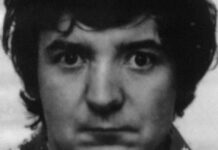The annual survey saw more than 30,000 officers, equivalent to 25% of all federated ranks, took part in. Respondents increasingly said their morale had been negatively affected by their work-life balance, their health and wellbeing, workload and responsibilities and their day-to-day job role.
Morale was found to be lowest among the Greater Manchester Police force, South Yorkshire and the West Midlands.
Steve White, Chair of the Police Federation of England and Wales (PFEW) said: “Officers do a heroic job as evidenced by the events of the past year, yet they feel undervalued and under pressure. We know that officers enjoy tremendous support from the British public as a whole, which is a source of enormous pride for them. But something has to give, and unfortunately the evidence shows that it is these officers’ personal welfare, as they struggle to meet rising demand with dwindling resources and 21,000 officers fewer than 2010.”
The survey also found that more than one in 10 cops can’t afford essentials – and that figure rises to around one in six for probationers. Mr White continued: “At a time when we have never needed the police more, with heightened threats almost weekly, we have many officers who are finding it hard to put food on the table for their families and are resorting to welfare schemes.”
“In real terms, pay has dropped by around 15% since 2010. If the pay cap was to continue for another four years, that would represent a 23% overall drop. No wonder officers are demoralised and despondent.”
While the survey revealed a small increase in those who said they were proud to be in the police (65% compared with 61%), once again over two thirds (70.4%) wouldn’t recommend joining the police to others. There was also a small increase in the number planning to leave the service either as soon as possible or within the next two years (12.3% compared to 11.8%).
Mr White added: “Policing has always adapted to changing demands. But the struggle to meet these demands in recent years has changed the outlook for many officers. It is encouraging to see that – in another recent PFEW survey – four in five new recruits (83.3%) say they intend to stay in the police service until pension age, but the challenge is now supporting and nurturing that enthusiasm so they feel motivated to continue with their chosen career in the years to come.”
For the first time ever, the survey also asked for officers’ views on recent professional development initiatives, including ‘direct entry’ schemes. More than three quarters said that the schemes at chief constable, superintendent or inspector levels would have a negative impact upon policing.
Mr White concluded: “The survey is an important source of evidence to help understand the impact that changes in pay and conditions have on our members. Well, the message couldn’t be clearer: Our members are feeling the strain and want to feel valued and be adequately remunerated. Every police force, HMIC and the College of Policing must now place greater emphasis on working together to improve police officer morale, welfare and wellbeing before it is too late.”







